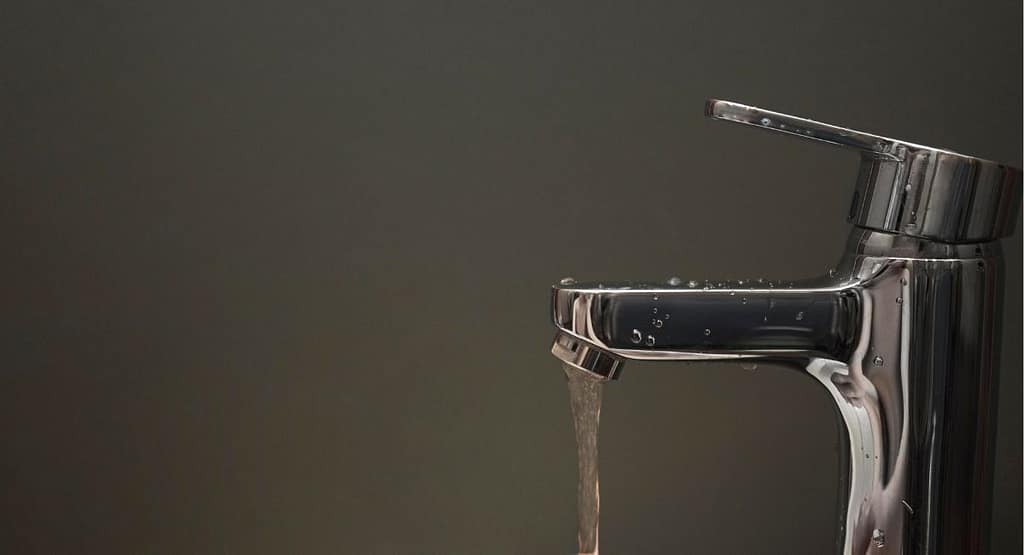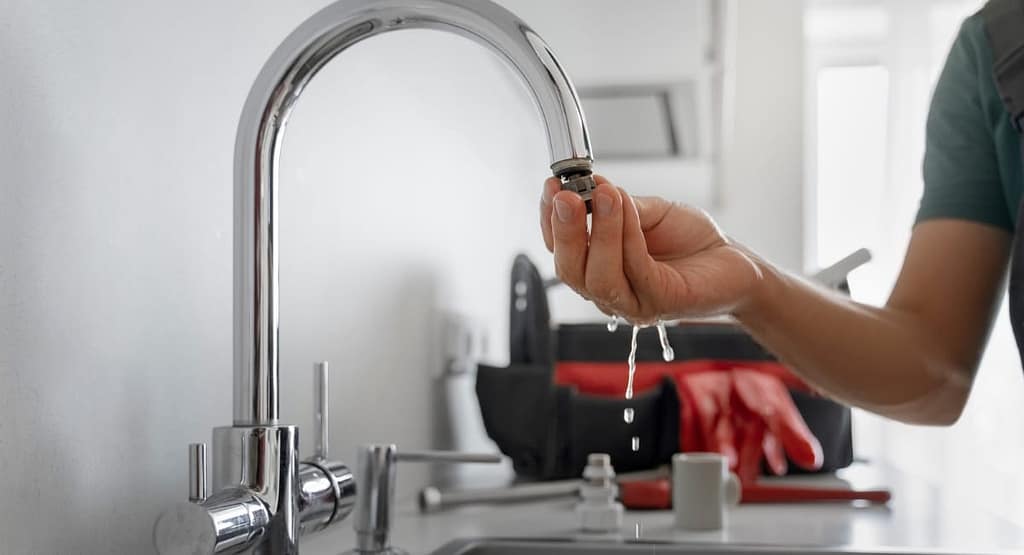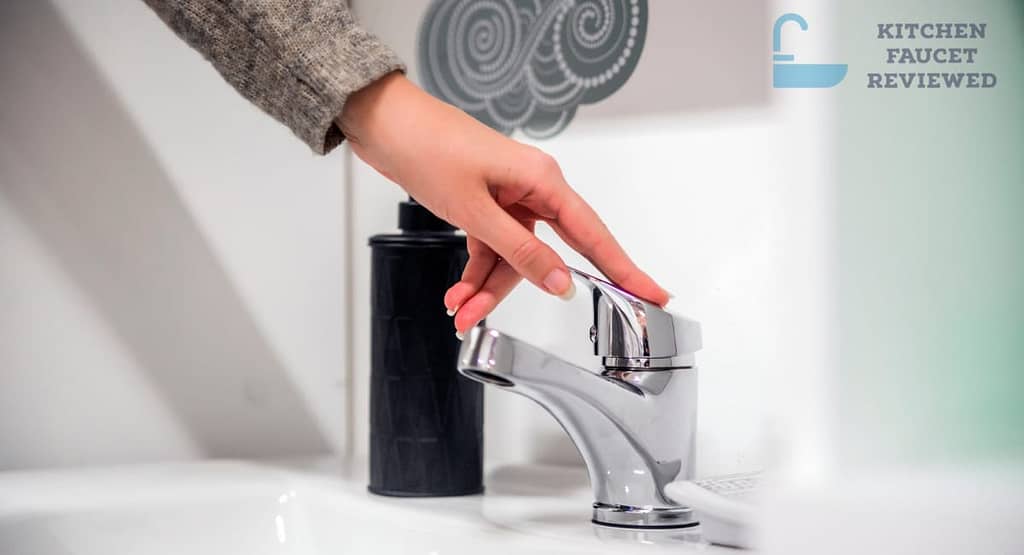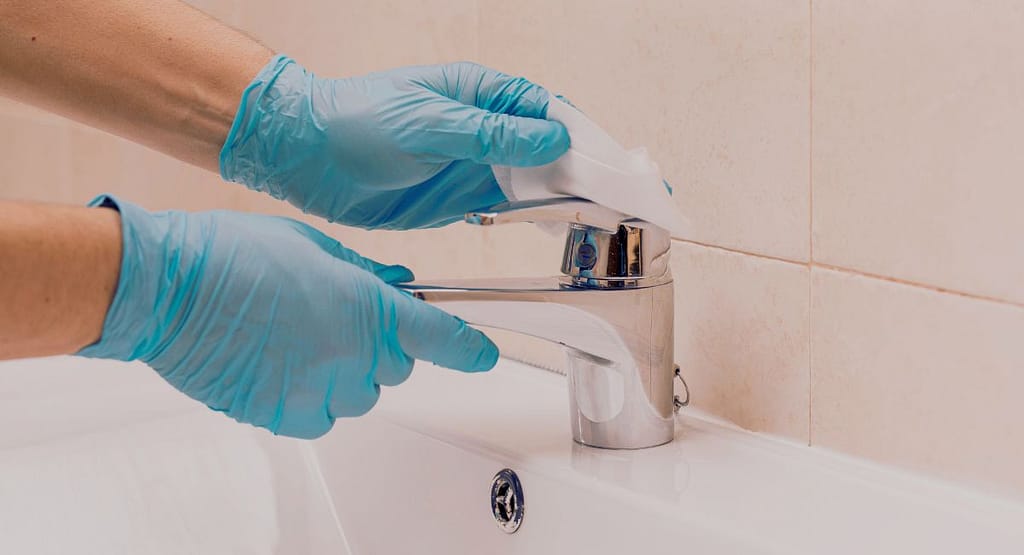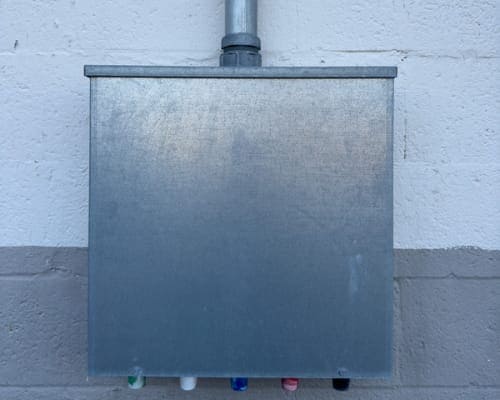
Tankless water heaters, embraced for their energy efficiency and instant hot water delivery, have become increasingly favored. Yet, like any appliance, occasional issues may arise. If you’re facing problems with your tankless water heater, it’s essential to understand the potential causes behind its malfunction. In this comprehensive guide, we will explore common reasons why tankless water heaters may not be working and provide you with valuable troubleshooting tips.
Why My Tankless Water Heater not Working?
1: Insufficient Gas Supply:
One of the primary reasons for a tankless water heater not working is an insufficient gas supply. Gas-powered tankless heaters require a steady flow of gas to function correctly. If the gas supply is interrupted or inadequate, the heater may fail to ignite or produce hot water. To troubleshoot this issue, check your gas line for any leaks or blockages. Ensure that the gas valve is fully open, and there are no issues with the gas pressure from your utility provider.
2: Inadequate Water Flow:
Another common culprit for a malfunctioning tankless water heater is insufficient water flow. These heaters require a specific flow rate to activate the heating mechanism. If the flow rate is too low, the heater may not turn on or produce lukewarm water. Check if the water inlet valve is fully open and there are no blockages or restrictions in the plumbing system. Additionally, ensure that the pipes leading to the heater are of sufficient diameter to handle the required flow.
3: Sediment Buildup:
Over time, mineral deposits and sediment can accumulate inside the tankless water heater, leading to decreased efficiency and potential malfunctions. Sediment buildup can restrict water flow and interfere with the heating elements. To address this issue, consider performing regular maintenance, such as flushing the system according to the manufacturer’s instructions. Flushing will help remove any accumulated sediment and restore the unit’s performance.
4: Electrical Problems:
In the case of electric tankless water heaters, electrical issues can cause them to stop working. Check if the unit is receiving power by verifying the electrical connections and ensuring that the circuit breaker or fuse is intact. If the heater has a digital display, check for error codes or warning indicators that may provide insight into the problem. If you suspect an electrical fault, it’s advisable to consult a qualified electrician for further troubleshooting and repairs.
5: Overheating or High Temperature Limit:
Tankless water heaters incorporate safety features to prevent overheating. If the unit reaches its maximum temperature limit, it may shut down to prevent damage or potential hazards. Verify that the temperature setting on the heater is within the recommended range and not set too high. Additionally, check if there are any obstructions around the unit that could hinder proper ventilation, leading to overheating.
6: Malfunctioning Sensors or Components:
Like any complex system, tankless water heaters rely on various sensors and components to operate correctly. If any of these elements malfunction, it can impact the heater’s performance. Faulty sensors, such as temperature sensors or pressure switches, may trigger error codes or cause the unit to shut down. If you’ve ruled out other potential causes and the issue persists, it’s advisable to contact a professional technician who specializes in tankless water heater repairs.
7: Check for Error Codes:
Many heaters are equipped with a diagnostic system that displays error codes when an issue arises. Refer to your unit’s manual to interpret these codes and identify the specific problem. Understanding the error code can help you and any professional you contact pinpoint the issue more efficiently.
8: Flush the System:
Over time, tankless water heaters can accumulate mineral deposits that hinder their performance. If you notice a decrease in hot water flow or temperature, flushing the system can help remove these deposits. Refer to your manufacturer’s guidelines on how to flush your specific model, or consult a professional plumber for assistance.
9: Inspect the Venting System:
Improper venting can lead to combustion issues in gas-powered tankless water heaters. Check the venting system for blockages or obstructions and ensure that it is correctly installed according to the manufacturer’s specifications. Any issues with venting should be addressed promptly by a qualified technician.
10: Consider Cold Weather Conditions:
In colder climates, tankless water heaters may struggle to provide hot water if the incoming water temperature is extremely low. Some units are equipped with freeze protection features, but extreme conditions may still impact performance. Insulate water pipes and consider additional measures to protect your tankless water heater in freezing temperatures.
Conclusion
A tankless water heater not working can be frustrating, especially when you rely on it for hot water. By understanding the common reasons behind the malfunction, you can perform troubleshooting steps to identify and resolve the issue.
Remember to consult the manufacturer’s documentation for specific guidance related to your unit. If the problem persists or if you’re unsure about performing repairs, it’s best to seek assistance from a qualified professional to ensure the safe and efficient operation of your tankless water heater.
FAQs
Q: Why is my tankless water heater not producing hot water?
A: Numerous factors could be contributing to this problem. Check if the gas supply is sufficient and the gas valve is open for gas-powered heaters. For electric units, ensure the electrical connections are intact. Additionally, verify that the water flow rate meets the minimum requirements and that there are no obstructions or sediment buildup in the unit.
Q: Why does my tankless water heater keep shutting off?
A: Several factors can cause a tankless water heater to shut off intermittently. Common causes include inadequate gas or water flow, overheating due to ventilation issues, malfunctioning sensors or components, or an electrical fault. It’s important to troubleshoot each possibility to determine the specific cause.
Q: Why is my tankless water heater displaying an error code?
A: Error codes can indicate various issues. They often correspond to specific malfunctions or system errors. Consult your unit’s manual or manufacturer’s documentation to identify the specific error code and refer to their troubleshooting guide for recommended solutions.
Q: My tankless water heater is making strange noises. What could be the problem?
A: Unusual noises, such as rattling, popping, or banging sounds, may indicate a problem with the heater. Potential causes include mineral deposits or sediment buildup, a loose or damaged component, or issues with the gas burner or heating elements. It’s advisable to have a professional technician inspect the unit to diagnose and resolve the issue.
Q: How frequently should I conduct maintenance by flushing my tankless water heater?
A: Regularly flushing is crucial for preventing sediment buildup. Typically, experts recommend flushing the unit at least once a year. Keep in mind that factors like water hardness and usage patterns may influence the optimal flushing frequency. Consult your specific model’s instructions for precise guidance on flushing intervals.
Q: Can I repair my tankless water heater myself?
A: While some simple troubleshooting and maintenance tasks can be performed by homeowners, it’s generally recommended to seek professional assistance for tankless water heater repairs. These units involve complex systems and specialized components, and improper repairs can lead to further damage or safety hazards. It’s best to consult a qualified technician with experience in working with them.

